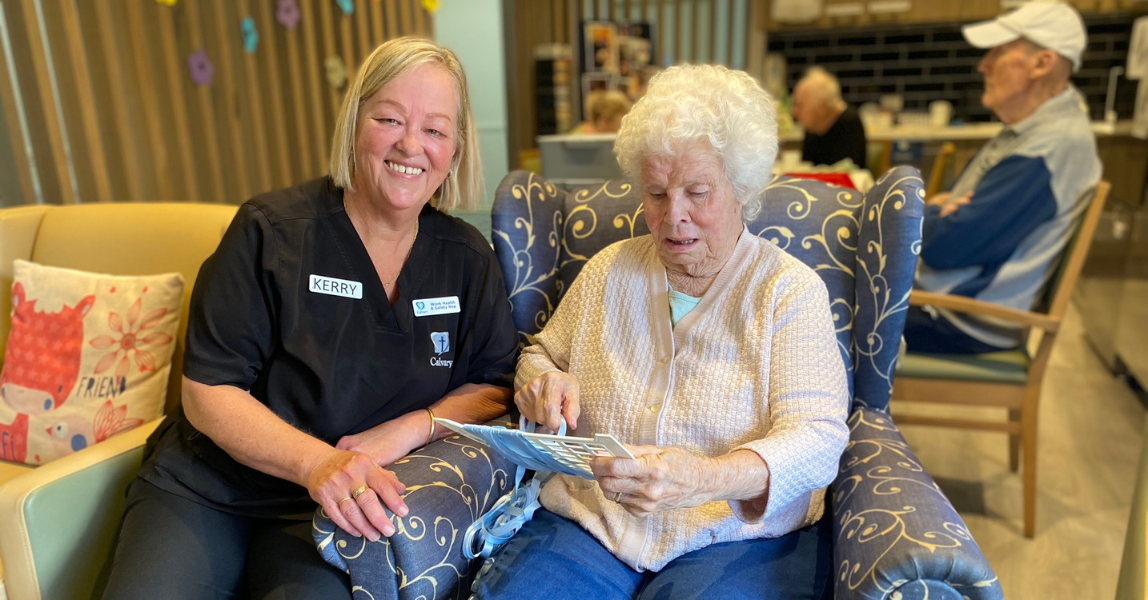Dementia Action Week

It’s not uncommon for people to assume someone living with dementia is unable to participate in daily life, but in my experience getting to know the person in your life living with dementia a little better and engaging them in a way that is comfortable for them can have a positive impact for both of you.
As the Lifestyle and Activities Coordinator at Calvary St Jude's Aged Care, I continually see the importance of understanding the identities, backgrounds, and aspirations of our residents living with dementia. Joe, a resident living with dementia who I once cared for, continues to stay in my heart and mind, even years later.
Joe had a strong passion for painting and had owned a maintenance and building business. He wanted to focus on his craft again. My team and I supported him to develop a plan aimed at helping him feel more fulfilled in life. Walking around the home, Joe began identifying areas that needed “a bit of work”.
Within two weeks, he had a plan, provided us with a shopping list of items he needed to get the job done and an quote for how much the work would cost. I took the proposal to our home manager, who involved the maintenance team in the project. This initiative helped Joe reconnect with his artistic skills and regain a sense of purpose. Along with the support of the maintenance team, he was able to paint a wall.
It was the beginning of many upgrades Joe made to the home over time.
This positive interaction with Joe gave me the encouragement to look at other ways to influence and transform relationships between our other residents living with dementia with staff and their fellow residents.
Recently, while hosting a meeting with about a dozen residents and their loved ones the topic of why people make the move into aged care came up. At St Jude’s we have residents who have made the transition because they fear falling and are hesitant to live alone, while others are seeking community and companionship.
Health factors also play a role, as residents may require support for conditions such as depression or dementia. The reasons are diverse, however, I felt that by seeking to understand why a resident chose to come into residential aged developed a greater appreciation among the group and respect for each individual’s needs among those present.
Following that meeting I noticed our residents living with dementia becoming more involved in the day-to-day activities as other residents actively engaged them in activities.
From something as simple as sitting down and having a cup of tea together, to encouraging the residents living with dementia to participate in activities, this organic shift in the residents’ mindsets began to affect positive change in the home’s dynamic.
I observed the wellbeing and happiness of our residents living with dementia significantly improve and the harmony and the camaraderie in the home grow. According to Dementia Australia there’s an estimated 433,300 Australians living with dementia and 1.7 million people involved in their care.
Without significant intervention, the number of people with dementia is expected to increase to an estimated 812,500 by 2054. This Dementia Action Week, and beyond, do not let dementia become a barrier to creating meaningful connections. The benefits to both of you can be life-changing.


